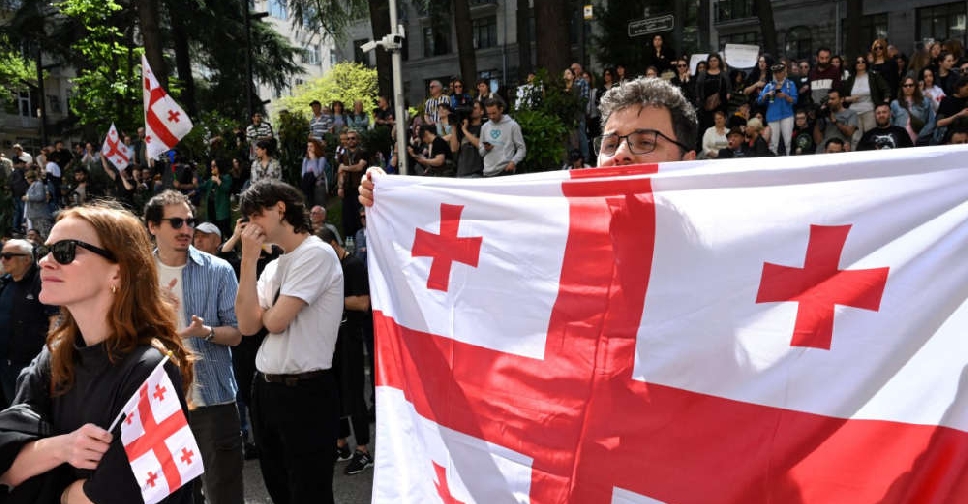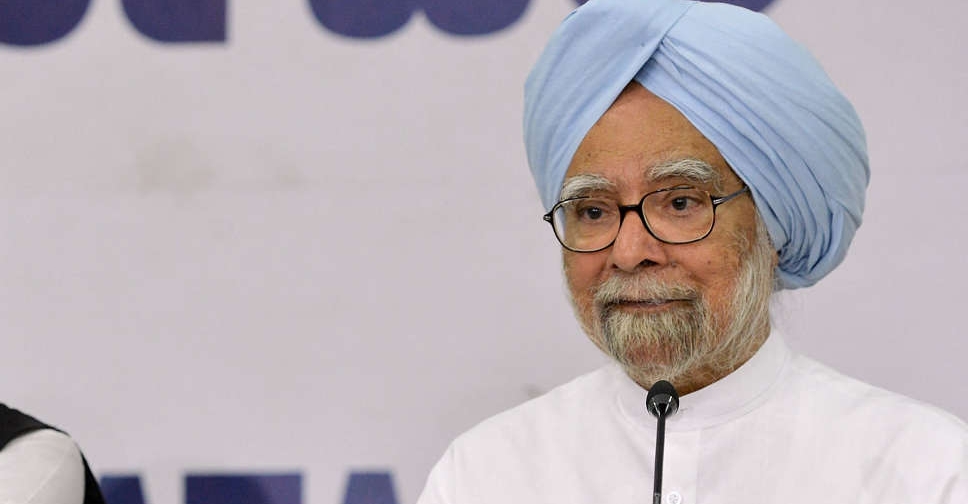
Georgia's parliament on Wednesday approved the first reading of a bill on "foreign agents" that the European Union said risked stifling freedoms and blocking the country's path to membership.
The fate of the bill is widely seen as a test of whether Georgia, 33 years after the collapse of the Soviet Union, intends to pursue a path of integration with the West or move closer towards Russia.
Eighty-three of 150 deputies voted in favour while opposition MPs boycotted the vote. The bill, which has provoked days of protests, must pass two more readings before becoming law.
It would require organisations receiving more than 20 per cent of their funding from abroad to register as agents of foreign influence, and has been compared by critics to a law that Russia has used extensively to crack down on dissent.
Soon after the vote, the EU said in a statement: "This is a very concerning development and the final adoption of this legislation would negatively impact Georgia's progress on its EU path. This law is not in line with EU core norms and values."
It said the proposed legislation "would limit the capacity of civil society and media organisations to operate freely, could limit freedom of expression and unfairly stigmatise organisations that deliver benefits to the citizens of Georgia."
The EU urged Georgia to "refrain from adopting legislation that can compromise Georgia's EU path".
Several hundred opponents of the bill gathered outside parliament on Wednesday. On Tuesday, protesters clashed with riot police who used pepper spray to clear the area of thousands of demonstrators shouting slogans against what they call "the Russian law". Eleven people were arrested and one police officer was injured.
In a rowdy session of parliament, four opposition lawmakers were removed from the chamber amid shouts of "No to the Russian law" and "Traitors".
Russia is widely disliked in the South Caucasus country of 3.7 million people, which in 2008 lost a brief war with Moscow over the Moscow-backed breakaway territory of South Ossetia.
The United States and Britain have also urged Georgia not to pass the bill.
Russia said on Wednesday it had nothing to do with the law, which it defended as a "normal practice". Spokesman Dmitry Peskov said it was being used by outside actors to stoke anti-Russian sentiment.
The ruling Georgian Dream party, which has faced accusations of authoritarianism and excessive closeness to Russia, says the bill is necessary to promote transparency and combat "pseudo-liberal values" imposed by foreigners.
The bill, which was initially introduced in March 2023 but shelved after two nights of violent protests, has increased divisions in a deeply polarised Georgia.
A coalition of opposition groups, civil society, celebrities and the country's figurehead president have rallied against the ruling party to oppose it.


 Israel strikes Yemen airport as WHO chief boards plane
Israel strikes Yemen airport as WHO chief boards plane
 Syria's new rulers declare crackdown as tensions flare in coastal area
Syria's new rulers declare crackdown as tensions flare in coastal area
 UNIFIL urges timely Israeli pullout from south Lebanon under truce deal
UNIFIL urges timely Israeli pullout from south Lebanon under truce deal
 Manmohan Singh, India's reluctant prime minister, dies aged 92
Manmohan Singh, India's reluctant prime minister, dies aged 92
 Russian air defence downed Azerbaijan Airlines plane: Sources
Russian air defence downed Azerbaijan Airlines plane: Sources







